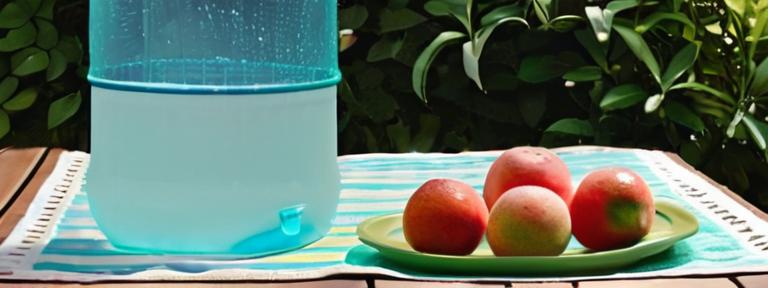Importance of Hydration During Summer
Staying hydrated is crucial, particularly during the hot summer months. Proper hydration ensures optimal bodily functions, regulates body temperature, aids in digestion, and maintains skin health. This article offers valuable insights into the recommended water intake and strategies for maintaining optimal hydration levels.
Understanding Water Needs
Factors such as physical activity, climate, and overall health play significant roles in determining one’s water needs. The Institute of Medicine recommends that men consume about 125 ounces (approximately 3.7 liters) of water per day, while women should aim for around 91 ounces (about 2.7 liters). However, these values may increase with physical exertion or exposure to high temperatures.
Activity Level
People who engage in intense physical activities are more likely to require increased water intake. It is recommended that individuals consume 16 ounces (0.5 liters) of water two hours before exercise and another 8 ounces every 20 minutes during the activity.
Environmental Factors
The heat index, humidity level, and altitude can all impact hydration needs. For example, in high temperatures or humid conditions, the body may lose water more rapidly through perspiration, necessitating increased water intake.
Symptoms of Dehydration
Signs of dehydration can range from mild to severe and include dry mouth, fatigue, dizziness, and confusion. In extreme cases, dehydration can lead to heatstroke, a life-threatening condition that requires immediate medical attention.
Strategies for Proper Hydration
Maintaining proper hydration is essential for overall health and well-being. Here are some strategies to help you stay hydrated during the summer months:
Water Consumption Tips
1. Drink water before, during, and after physical activities.
2. Carry a water bottle and refill it regularly to ensure constant access to hydration.
3. Incorporate water-rich foods into your diet, such as fruits and vegetables, to help maintain hydration levels.
Hydration Aids
1. Electrolyte drinks can help replace lost minerals and electrolytes during intense physical activities or long periods in the sun.
2. Coconut water is a natural source of electrolytes, making it an excellent choice for hydration when spending time outdoors.
Staying Cool and Hydrated
1. Wear lightweight, loose-fitting clothing to allow for better body cooling and reduce the risk of overheating.
2. Take cool showers or baths to help regulate body temperature and promote hydration.
3. Schedule outdoor activities during the cooler parts of the day to minimize exposure to high temperatures and humidity.
Conclusion
Maintaining proper hydration is vital for optimal health, especially during the hot summer months. Factors such as activity level, environmental conditions, and overall health play significant roles in determining one’s water needs. By following strategies like increased water consumption, incorporating hydration aids, and staying cool, individuals can ensure they stay well-hydrated throughout the season.
Further Reading
For more information on proper hydration, visit reputable health organizations such as the American Heart Association or the Mayo Clinic’s websites.


